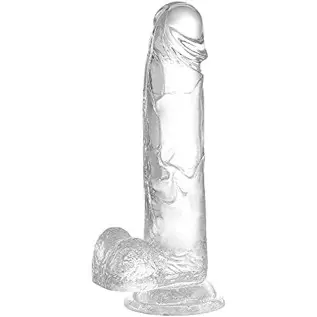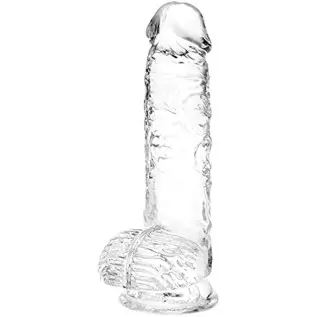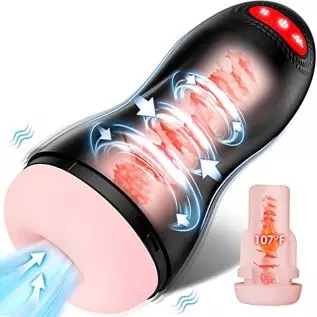Will a woman always get red on her first night? How can women protect their vagina?
Does a woman always get popular on her first night?
Is it true that a woman will become popular on her first night? Not necessarily. According to a survey report, 63% of women in the survey did not bleed during or after their first vaginal intercourse. What’s even more interesting is that women who have had vaginal intercourse can also experience intercourse bleeding. Therefore, vaginal bleeding cannot be evidence of first vaginal intercourse.
1. Causes of bleeding during virgin sexual intercourse for the first time
Many people know about the hymen, but few know what it is. The hymen is not actually a membrane, but is made up of mucosal tissue. Its inner and outer sides are covered by squamous epithelium, and the middle layer contains connective tissue, blood vessels and nerve endings. The amount of connective tissue determines the thickness of the hymen. Those with thick hymens are more elastic and difficult to break, while those with thin hymens are prone to lacerations.
Hymen rupture most often occurs during first sexual intercourse. When it ruptures, women will experience sudden severe pain, accompanied by a small amount of bleeding. Generally, the bleeding can stop on its own without special treatment. However, there are a few women whose hymen has good elasticity and a certain degree of expansion, and remains intact without bleeding after sexual intercourse. Therefore, no bleeding does not mean that you are not a virgin. On the contrary, some women have had their hymen repaired or have cervical lesions, and they see redness after intercourse, but they are not virgins.
2. Reasons for heavy bleeding after the first night
Under normal circumstances, the hymen ruptures and bleeds during the first night, and the bleeding is usually very small, and the bleeding can stop on its own. However, violent sexual intercourse may cause excessive laceration of the hymen, causing damage to surrounding tissue and heavy bleeding.
In addition, in addition to first-time sexual intercourse, vaginal congestion during pregnancy, postpartum or postmenopausal vaginal atrophy, vaginal surgery scars, vaginal deformity or stenosis, improper position during sexual intercourse, and drunk men having sex may cause vaginal damage
How do women protect their vaginas?
1. Get up and walk around often
Don't sit on an office chair for a long time. Sitting on a fitness ball for 15 minutes a day can make the pelvic floor muscles naturally contract and help strengthen the vaginal muscles.
2. Use the woman on top during intercourse
Women are prone to stretch injuries in the lower part during sex because the male partner controls the rhythm and depth of penetration, which sometimes exceeds the range of the female vagina. If the female-on position is used, the woman is in a controlling position and can better contract and control the vaginal muscles.
3. Reduce long-term riding
The constant friction between the bicycle seat and the crotch can damage the labia, especially in women with naturally convex labia majora. Therefore, if it is not required for professional training, women should reduce long-term riding to better care for their private parts.
4. Understand vaginal knowledge
From the age of women in their 20s, the fat in their private parts begins to decrease, and gradually becomes sagging as they age. As women approach menopause, their vaginal lining begins to thin, blood flow decreases, and the pelvic floor muscles weaken. A flabby vagina can have an impact on a woman’s sexual confidence.
5. Avoid weight fluctuations
If the weight fluctuates greatly, it will definitely affect the "beauty" of the vagina. Rapid changes in weight will cause the vagina and vulva to be overstretched and damaged. Women should not lose weight excessively and maintain a healthy weight. If a woman is too thin, her private parts, like her face, will age prematurely and become sagging.
6. Understand the knowledge of correct vaginal cleaning
(1) Pay attention to the order of cleaning
When cleaning the vagina, you should pay attention to gentle washing with your hands. To ensure the order of cleaning, you should pay attention to the purpose of cleaning. According to the characteristics of the site and the water flow, it is recommended to wash the vulva from front to back after washing your hands - wash the labia majora and minora. -Around the anus, anus.
(2) Use lotion with caution
If you want to use lotion, you need to find out whether the lotion is medicinal, disinfectant, or cosmetic. Because the usage methods, indications and contraindications of different lotions are very different, choose the method that matches them to avoid the side effects of blind use.
(3) Pay attention to the cleaning method
During vaginal cleaning, take a warm shower. Do not use used water again to avoid incomplete cleaning. It is recommended to purchase a special vaginal nozzle and spray the vulva directly with water. If you don't have shower facilities, you need to purchase a special basin.
(4) Clean with warm boiled water
For healthy women, vaginal cleansing only requires warm water. If you want to use a cleaning solution, you should pay attention to choosing a specific type and choose a mild product. In addition, soap and other alkaline lotion products and substances are prohibited to avoid causing vaginal flora imbalance and inducing diseases.
(5) Pay attention to the correct cleaning frequency
The frequency and time of vaginal conditions are related to seasonal environment and other factors. If you take a bath every night in summer, you can clean your vagina while taking a bath. If it is winter, the vagina can be specially cleaned in 2 to 3 days. In addition, after intercourse and defecation, you should pay attention to vaginal cleanliness.
7. Keep your sex life active
The principle of “use it or lose it” also applies to the female genitals. If a woman's vagina doesn't get enough stimulation or increased blood flow, the tissues and muscles in the area can change. Engorgement is critical for vaginal lubrication. Scientists have also discovered that if couples are not worried about unwanted pregnancy, then the man's semen can prevent the aging of the female vagina.

















